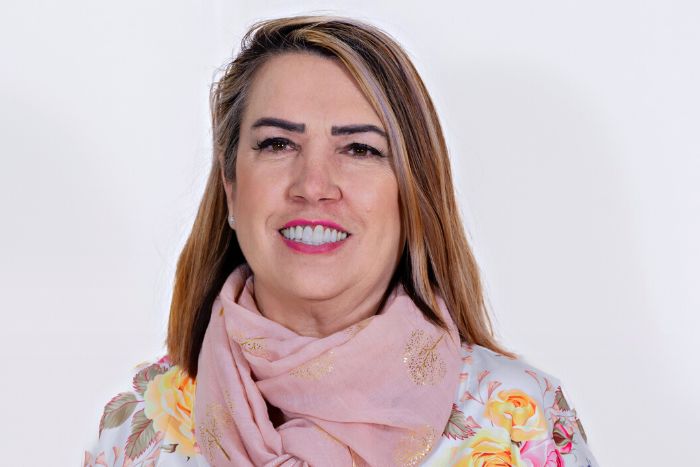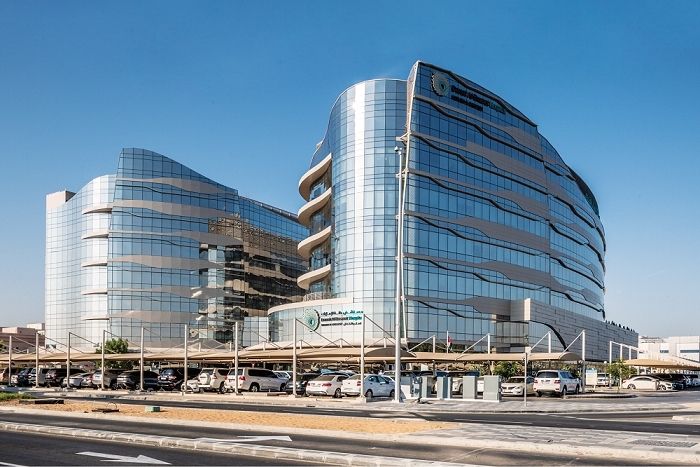The Education Department at Danat Al Emarat Hospital provides an enviable raft of training opportunities for both its staff and those wishing to enter the health profession
PARTNER CONTENT: Danat Al Emarat, a Mubadala Health partner, is a world-class specialty women and children’s hospital that is also accredited as a clinical research centre by the Department of Health – Abu Dhabi.
To maintain its world-class status, Danat Al Emarat Hospital is committed to continuous education and Continuing Professional Development (CPD), as well as providing leading resources that are seldom found elsewhere.
The Hospital also works closely and has agreements with educational institutions and universities both here in the UAE and on an international level, thus ensuring that the caregivers are trained to international standards.
The Hospital’s Education Department offers an impressive range of around 20 training specialities, thus increasing prospects for both healthcare professionals and individuals aspiring to pursue a career in the medical field.
The Department’s core responsibility is to guarantee that all employees receive comprehensive training. This is achieved through the efforts of Dr Tracy Roake and her education team, as well as student affairs, all of whom provide diverse educational courses tailored to meet the unique requirements of each specialty.
You might also like: Awareness of endometriosis
Dr Tracy explains that the Education Department operates under two main pillars.
“The first pillar is the education for our employees; the second being clinical, non-clinical and allied health, and education for our trainees,” says Dr Tracy, who shares how the first pillar is divided into two areas, mandatory and non-mandatory education, while the second is centred on education for the hospital’s trainees.
“Mandatory education consists of anything that requires people to be licensed in the profession as per the Department of Health, or as per our policy mandated in order to provide the best quality care for our patients,” she says.
“Non-mandatory education is more professional development such as if there are any gaps, or areas that we feel that the particular person requires to Our primary role is to ensure that all our caregivers are up to date with their training, improve on the standards of care that we provide, or if they feel that they need to get some upgrading on their professional development on their own requirements or needs for specialties.”

The hospital’s Education Department provides about 15 different courses, including for all the individual specialties. “Regarding the trainee phase, we have three different levels of approved practice settings within the Department of Health,” explains Dr Tracy. “The first is the basic approved practice, whereby we have undergraduates and observership. Therefore, anyone who’s actually busy training to become whatever it is they desire to become will come to us and we will provide the clinical placement, or the practical placement,” adds Dr Tracy.
She further explains how the Department not only offers training for clinical allied health, but also for non-clinical such as IT, biomedical and so on. Unsurprisingly, the hospital has a raft of MoUs with different academic centres and facilities, which Dr Tracy describes as a win-win situation. “We will take on trainees to conduct the practical side of things, or the clinical side of it, and the centres and facilities will provide the theory.”
There are two different levels. One is the intermediate level for trainees, which is where the hospital can take on the internship programmes, medical interns for example, who require between six months to one-year practical experience in disciplines such as Medical, Laboratory, Pharmacy, Speech Language, Pathology, Physiotherapy, Nursing and Midwifery.
“The advanced level is for residency programmes and for fellows,” Dr Tracy explains. “We currently have well-established Obstetrics and Gynecology, as well as Pediatrics Residents onboarding every year.”
The Education Department is accredited by the Arab Board and is currently working towards being accredited by the Royal College of Canada. It also holds NIHS accreditation, which is the National Institute of Health Specialties, an Emirati Board who visits the facility to ensure the levels of trainings offered can be supported. “We’re doing really well,” says Dr Tracy.
PROFESSIONAL DEVELOPMENT
Danat Al Emarat is both open to research and developing people, encouraging them to take up a master’s degree. The facility also promotes people into instructorship courses such as a basic life support instructor. “We are also sending people off to the PROMPT course, Practical, Obstetric Multi-professional Training, to become train the trainer, which is a very elite course.”
There are other types of development too, such as empathy and compassion within the hospital. “It’s not mandatory but is about uplifting. There are leadership courses in the offing too, which Dr Tracy says are very important for the leaders within the hospital’s units and departments.
“There are preceptorship workshops, to help support the trainers for our trainees, as such, so that we can develop them to actually help trainees get to where they need to get.
“All in all, as a training Department, we are extremely proactive.”
For more information about the hospital, visit Danat Al Emarat
Follow Yalla – Abu Dhabi Life for all the latest news across the capital and beyond

